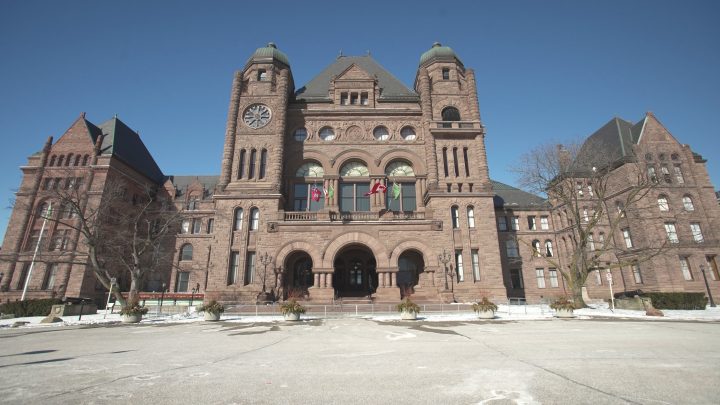TORONTO — The Ontario government introduced legislation Tuesday that would cement changes to how provincial judges are appointed, part of several reforms it said aim to increase access to justice.

The changes to the judicial appointment process sparked controversy when they were first presented last year, but the government said Tuesday it has made adjustments to reflect feedback from those in the justice system.
Attorney General Doug Downey said allowing the system to be more nimble in filling judicial vacancies will help tackle the growing courts backlog caused by the COVID-19 pandemic.
“That’s exactly why I’m doing this now — I want to make sure that we have all resources in place as we move through this to be able to manage the challenges that we have in terms of backlog. And that’s why we can’t wait,” he said Tuesday.
Last year, the government proposed increasing the number of candidates recommended to fill vacancies on the provincial bench from a minimum of two to a minimum of six, and requiring the selection committee to give the Attorney General a list of all candidates deemed eligible.
The move was met with criticism from some in the legal community who said the province was attempting to introduce partisan appointments to an independent process.
The proposed changes had not yet been put before the legislature. However, the province said amendments to how justices of the peace are selected — including a significant reduction in the number of members on the appointment advisory committee — passed late last year.

If passed, the legislation introduced Tuesday will allow the Attorney General to see the names of the six or more recommended candidates, but not the full list of those considered eligible.
The recommended candidates will form a pool that could be considered for any vacancies within a year without requiring an applicant to reapply. The government has said that will expedite the appointment process in a way that doesn’t undermine independence or transparency.

Get daily National news
Downey will still be able to reject the committee’s recommended candidates and request another list of at least six from those considered eligible.
He said Tuesday the newly proposed system should alleviate concerns regarding potential partisanship.
“I don’t know who’s applying, there is no line of sight to any of that. So, if I was to turn the list around and ask for another list, I don’t know who’s next,” he said.
Downey said there are currently six or so vacancies for provincial judges, who handle some criminal cases, traffic tickets and provincial offences. Judges for the Superior Court of Justice are appointed by the federal government.

The bill introduced Tuesday also includes a number of other amendments the province said will improve access to justice.
In response to the pandemic, Ontario temporarily allowed wills and powers of attorney to be witnessed through virtual means — a change it now proposes to make permanent.
“These changes would address the limitations posed by travelling to access these services in-person through COVID-19 and beyond,” the government said.
The government is also seeking to allow documents to be filed in French at all of the province’s courthouses for all matters, including civil and family law.
Another amendment would consolidate the province’s five land tribunals — the Local Planning Appeal Tribunal, the Environmental Review Tribunal, the Board of Negotiation, the Conservation Review Board and the Mining and Lands Tribunal — into a single tribunal.
The government said creating a single avenue to resolve those disputes would eliminate “unnecessary overlap between cases” and make the overall process more efficient.
The bill also includes changes to court costs for parents seeking guardianship for their children’s property and oversight bodies for accountants, as well as permission for the Office of the Children’s Lawyer to produce reports on specific issues.







Comments
Want to discuss? Please read our Commenting Policy first.